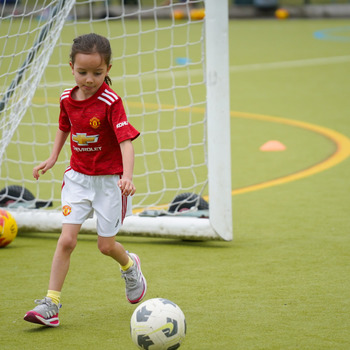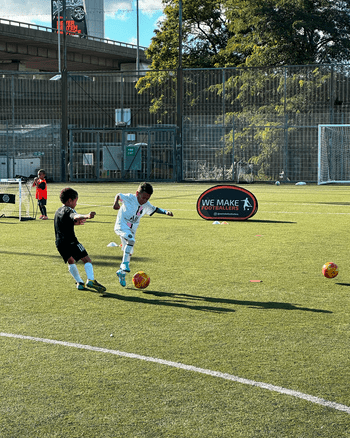Are after-school training program right for your school?
After-school football training program are becoming an increasingly popular option for schools looking to maintain extracurricular activities at a time when budgets are being cut even further.
Here, we take a look at five of the reasons as to why an after-school training programme with a company such as We Make Footballers might be right for you school.
After-school programmes boost pupils physical fitness levels
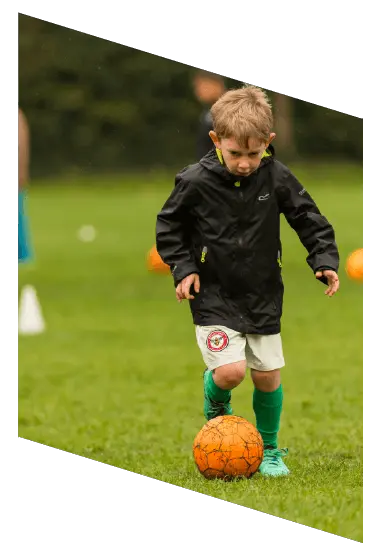
Public Health England figures suggest that almost 60,000 children are categorised as “obese” when they reach the end of primary school education with 22,000 of those considered “seriously obese”. This is a phenomenon more countries are facing, leading schools, governments, parents and health-care systems to implement preventive measures and direct action to address the issue.
There are two obvious ways to beat the obesity crisis that is seemingly gripping the nation’s young. One is to promote healthy eating, which schools and government have been improving over the past few years.
The other is through increased and the normalisation of physical exercise. An after-school football training program ensures that pupils are active, receive exposure to physical activity and games, thus encouraging a more positive outlook to taking part in exercise.
Aside from helping to keep pupils at healthy, football can also improve children’s transferable skills such as ABC’s (agility, balance and coordination), enhance the circulation of blood and lead to stronger muscles and bones.
Training programmes come with their own equipment
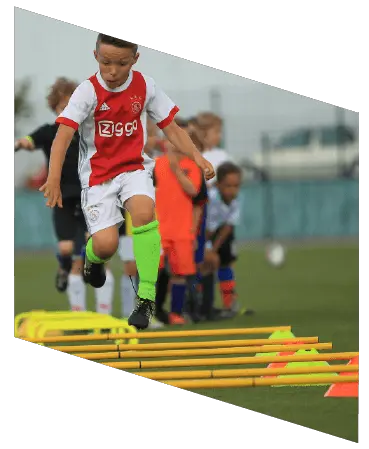
The financial implications of extracurricular activities and in particular, the equipment needed to carry them out can be a challenge for establishments. As a result, lots of schools are relying on ageing or damaged sports equipment.
That isn’t a problem when a school partners with We Make Footballers. We provide all the necessary equipment, meaning that pupils have plentiful access to football, goals, cones, bibs and everything else needed to deliver high-quality coaching sessions.
It offers pupils the opportunity to play and train with profession standard equipment which they may not get otherwise.
It gives pupils something to look forward to
Professionals such as Kyle Walker and Raheem Sterling are on record as saying how playing football changed their lives and prevented them from getting into trouble outside of school. Both Walker and Sterling believe that they could have quite easily gone down a dangerous path were it not for their sports teams and their coaches giving them something to do in their week.
That makes after-school coaching an important weapon for schools in terms of trying to keep pupils on the straight and narrow. If a school has concerns about what happens to their pupils when they pass through the gates at the end of the day, then running after-school training can help to keep those pupils off the streets and give them a focus away from their studies.
After-school clubs are an equalizer
A 2016 study carried out by the NatCen Social Research, Newcastle University and ASK Research revealed that after-school clubs and sports can improve the academic performance and social skills of disadvantaged primary school pupils.
The research found that primary children from lower socio-economic backgrounds who had taken part in after-school clubs achieved better results at age 11 then those from similar homes who had not. The Nuffield Foundation, which funded the research, added that such clubs are “easy vehicles” for development.
By having an after-school football training program in place, a school could therefore be helping to boost the academic potential of some of its more disadvantaged pupils. It’s the ultimate justification for the power of football.
Football coaching in your school offers pupils opportunities
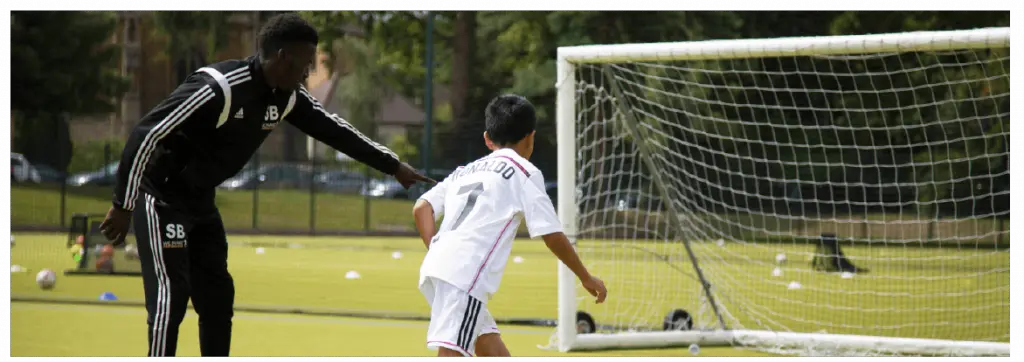
At We Make Footballers, we have direct partnerships with local and professional clubs, meaning that we place a heavy focus on player pathways for pupils to progress with their football beyond the school playing field.
That might be by joining a local club where they can continue to receive all the benefits that playing football provides on a more regular basis than is possible through school. If they show real talents, then there could even be the chance to go on trial and sign for a professional side.
Becoming a professional footballer is a career path that is open to very few children, but an after-school football training programme can help create a positive attitude towards sport for all students for many years to come.

